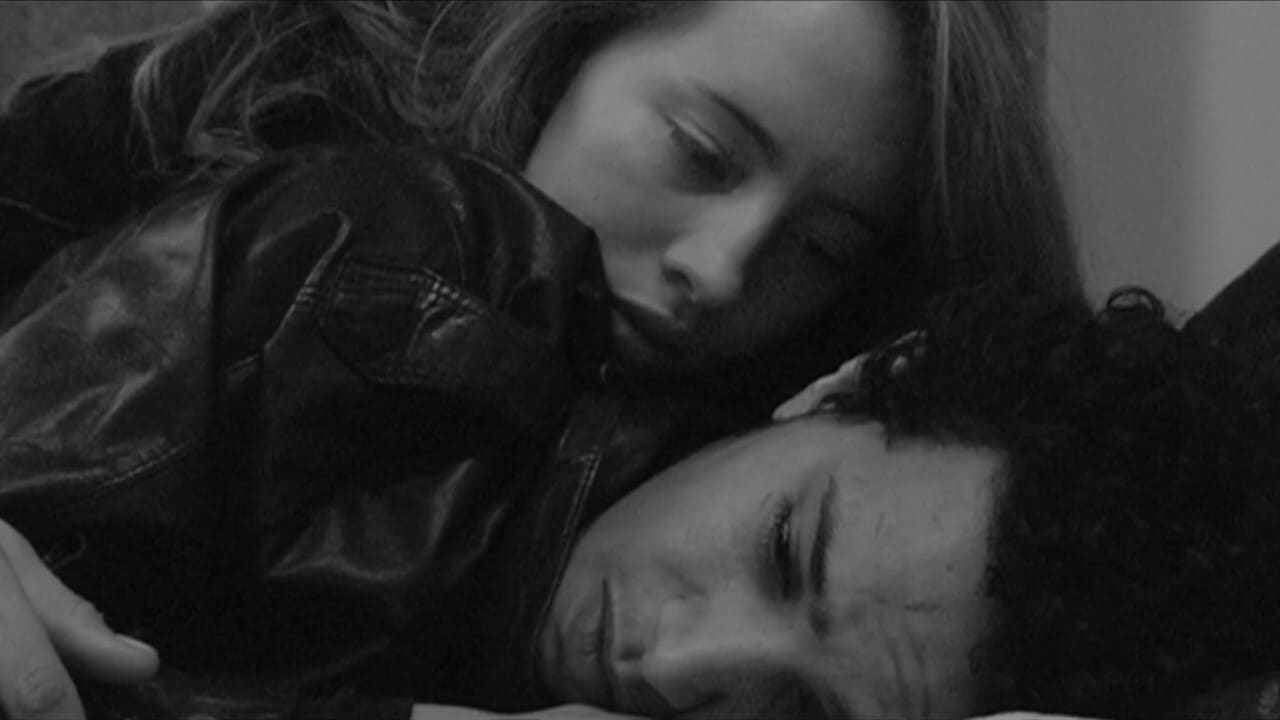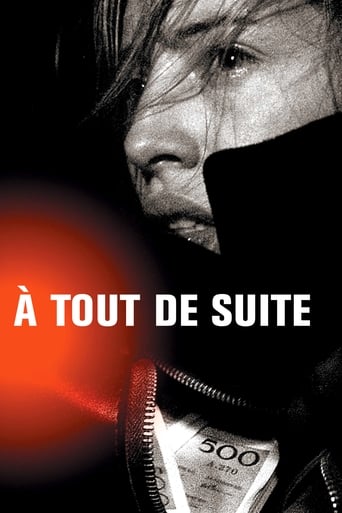

Enjoyed this movie. As one reviewer said: it shows what it was like to be 19 again. I liked the way the story was developed but wish there was a sequel. It somehow touched me deeply, especially the way it dealt with sexuality. The way the story ended was interesting - but frustrating. I would like to see more movies by this director. The scenery shots were nice. I wish the movie could have been a little longer, so as to develop more of the story. I saw the movie several times, just in case I would never be able to see it again ever. The fact that it is based on a book, a memoir makes it all the more fascinating. I was interested in hearing that the female star was of mixed heritage. I would like to read the book from which this story was taken but it does not seem to be available in the US - translated or not.
... View MoreBenoit Jacquot takes a real story from the 70s to base his film. "A tout de suite" photographed in black and white by Caroline Campeter, tries to capitalize on the mood and atmosphere of better made French movies of an earlier period.The young woman, Lili, at the center of the film, is a woman from a bourgeois home. Evidently, although nothing is made clear, her parents are divorced, or at least are separated. The big apartment where she lives with her father and sister seems to be the refuge for stray characters this girl feels attracted to.First, when we first encounter her, she is in bed with another young woman, who is a fellow student in her drawing class. There is a hint of lesbianism, although nothing is clear. Lili and the friend later meet a shady character who invites them to go dancing. In the boite, Lili meets Bada, a Moroccan, who she feels immediately attracted to. This chance meeting will prove to be Lili's downfall as she embarks in a partnership with a couple of bank robbers trying to escape justice in France.The film's best asset is Isild Le Besco, who as Lili makes the best of the central role. Ms. Le Besco is a beautiful woman who one sees in all her splendor. This is an actress who has no problems being naked in front of the camera that clearly adores her. Her character is a complex one. The other players, none of whom we are acquainted with, do their jobs well.Mr. Jacquot film has a feel of being a documentary in the way the action is presented. "A tout de suite" is only notable for the character study of Lili, but we don't feel involvement with the rest of the people we meet. It's a disturbing film that, judging from the empty theater where we saw it, doesn't seem to have caught the imagination of the public.
... View MoreThis film was so terribly BORING. The 'lovers' are boring, insipid losers. Ratso Rizzo was an engaging unforgettable interesting loser. These characters are just flat, cardboard idiots with no reason to be filmed. They deliver almost all of their lines in flat whispers and monotones. The wannabe suspenseful scenes have no suspense... in fact I didn't realize certain scenes were supposed to be suspenseful until I looked back wondering what this movie was even trying to say or do. ALL of the would-be exciting action takes place off-screen. Characters come and go with little explanation. 'Location' scenes in foreign countries have no character or appeal. Really, NOTHING about this film has appeal, except for the obligatory nudity of the lead actress and the wasted looks and acting of the female co-star. The cinematography is grimy, poorly lit black and white. I warn everyone, save your time and your money. This film is UN CHIEN! The audience I saw it with groaned when it ended.
... View More"À Tout de Suite (Right Now)" breathlessly recreates the New Wave/Nouvelle Vague style as a way to very effectively provide the female point of view parallel to the more violent American films Malick's "Badlands" and Spielberg's "Sugarland Express" that also portray chases inspired by true stories of the same period. But by filming in black and white, writer/director Benoît Jacquot is able to seamlessly incorporate period mise en scene backgrounds.Isild Le Besco, a young, gorgeous actress with a surprisingly long resume, fearlessly portrays Every Mother's Nightmare of a restless, rebellious teen, filmed like an older, blonder, distaff bourgeois version of the boy in Truffaut's "The Four Hundred Blows." She quickly moves from cutting classes and experimenting with drugs and sex to the thrill-seeking of realized fantasies in being on the lam with an exotic boyfriend.Ouassini Embarek appropriately come across like a Moroccan James Dean and her exploration of his family and roots is an unique feature of this genre.One advantage of setting the story firmly in the 1970's as it happened is the close encounters of experiences like those that more viciously victimize today's European girls on the loose, as in "Lilja 4-ever," only terrifyingly threaten as she is able to be surprisingly resourceful, if well, flexible.The director does communicate that actions that are innocent explorations between teens take a more menacing turn when an adult is involved, but she is more manipulative than any American filmmaker, since Scorcese's "Taxi Driver," would probably portray teen girls in parlaying their sexuality for survival on her terms, though sometimes her long stretches of passivity are slow and frustrating in between the action generated by the repetition of the titular call to arms.The music of Tangerine Dream in particular on the soundtrack helps reinforce fears with a slightly sinister leitmotif, and the rest of the European period pop music is atmospherically selected.Jacquot stays sympathetic to her point of view through to the end, even if the lessons she has learned seem more from a reality TV show or the criminal satire "From Noon Till Three" than a mother might wish while a parent's over-reactive lesson might be: Lock up your daughters! Close-ups are a bit over-used, but they reinforce her adolescent self-centeredness.
... View More